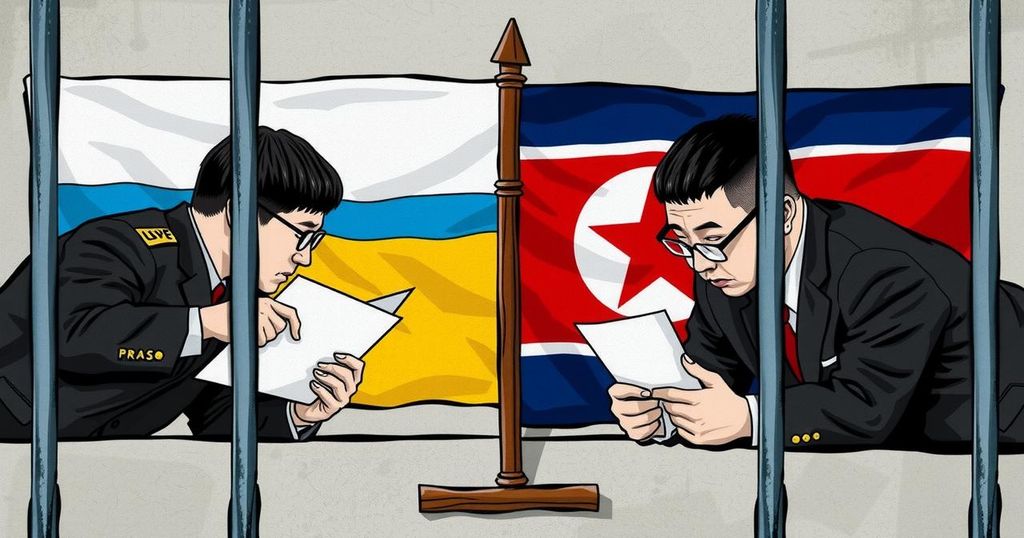Zelensky Proposes Prisoner Swap with North Korea Amid Ongoing Conflict
Ukrainian President Volodymyr Zelensky has proposed a prisoner swap with North Korean leader Kim Jong Un, offering to return captured North Korean soldiers in exchange for Ukrainian captives held by Russia. He stated that the eventual capture of additional North Korean troops is likely, as the conflict continues to evolve. The involvement of North Korean forces in Ukraine has drawn attention to the complexities and geopolitical implications of the war.
In an unexpected diplomatic move, Ukrainian President Volodymyr Zelensky has proposed a prisoner exchange with North Korean leader Kim Jong Un. He stated that Ukraine is prepared to return North Korean soldiers captured during the ongoing conflict in Kursk in exchange for Ukrainian soldiers currently held in Russia. Zelensky emphasized the inevitability of capturing more North Korean troops in the future, suggesting a growing engagement on this front. He also released a video showing the captured North Korean soldiers, highlighting their circumstances and claiming that they had been misled about the nature of their deployment.
The situation surrounding the Ukraine-Russia war has escalated with the involvement of North Korean troops, marking a significant shift in the dynamics of the conflict. Recent intelligence reports indicate that North Korea has deployed approximately 11,000 soldiers to support Russian operations, with casualties already reported nearing 3,000. Zelensky’s appeal for a prisoner swap signifies a strategic maneuver to negotiate the release of Ukrainian soldiers while also exposing North Korean involvement in the war, further complicating international relations in the region.
President Zelensky’s proposal for a prisoner swap with North Korea represents a significant development in the Ukraine-Russia conflict. It reveals Ukraine’s readiness to engage diplomatically in complicated circumstances, potentially allowing for the safe return of Ukrainian troops. This situation further underscores the international ramifications of the conflict and the necessity for continued monitoring of North Korea’s role in the ongoing war.
Original Source: www.independent.co.uk




Post Comment